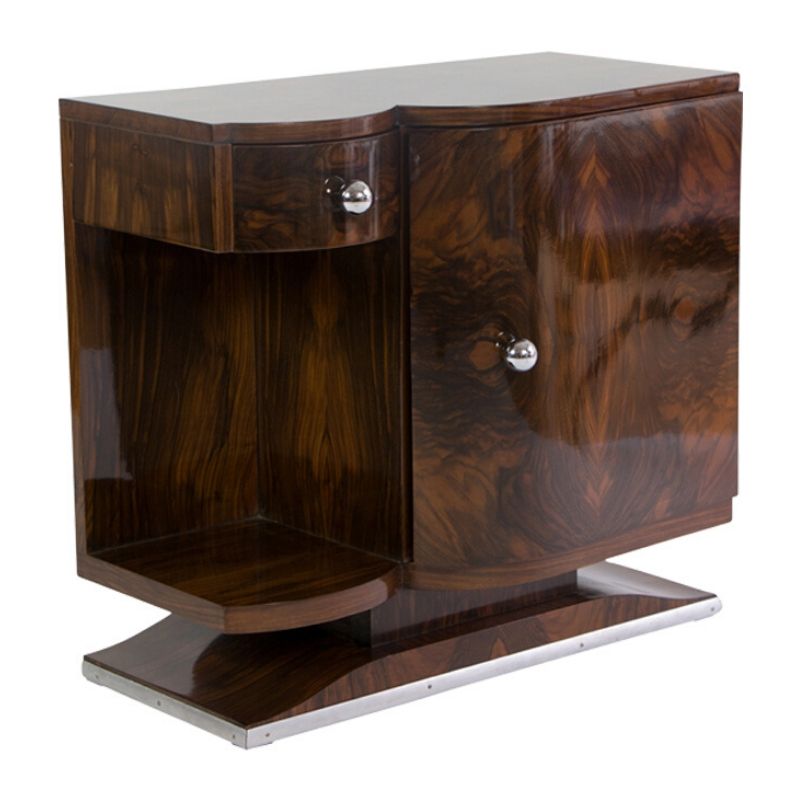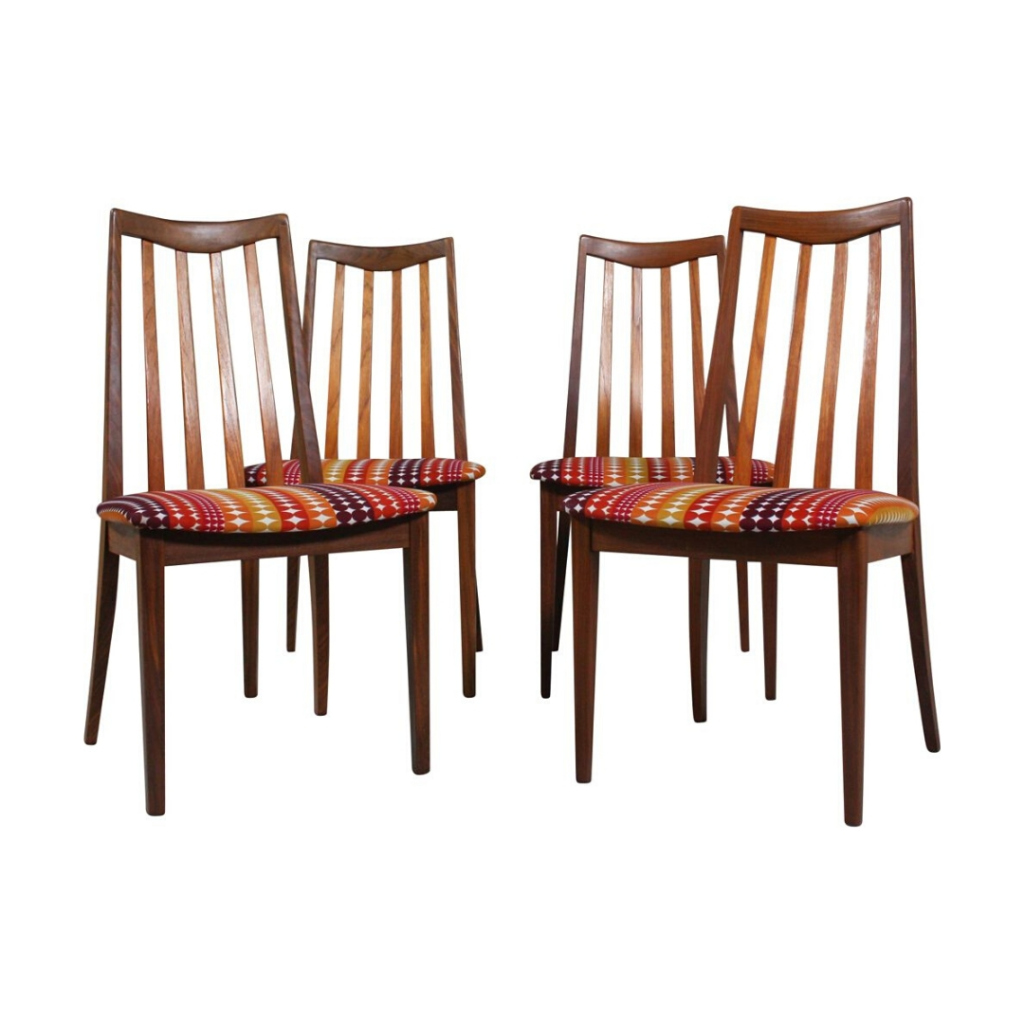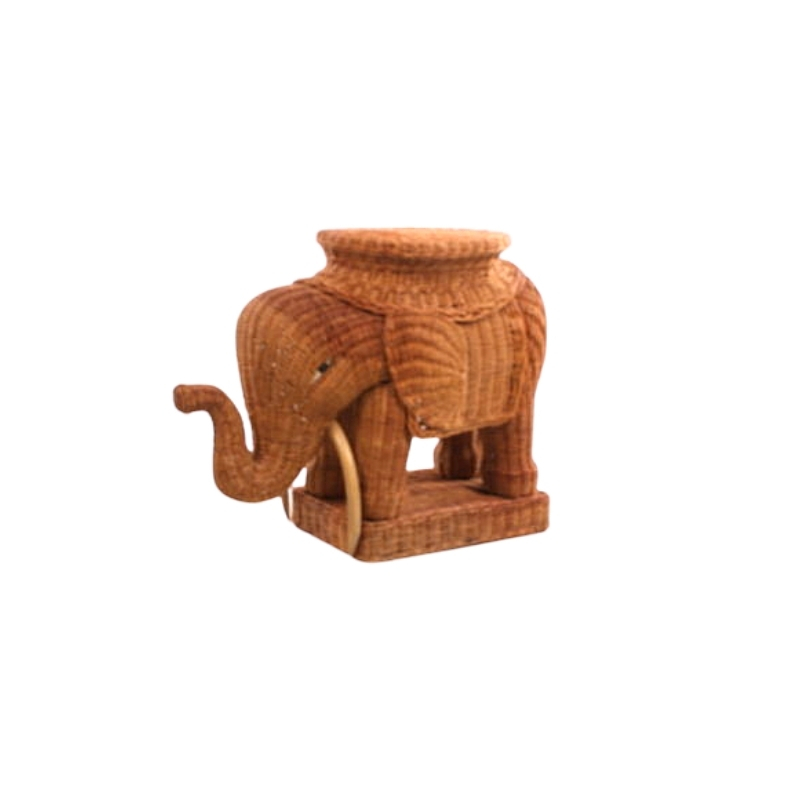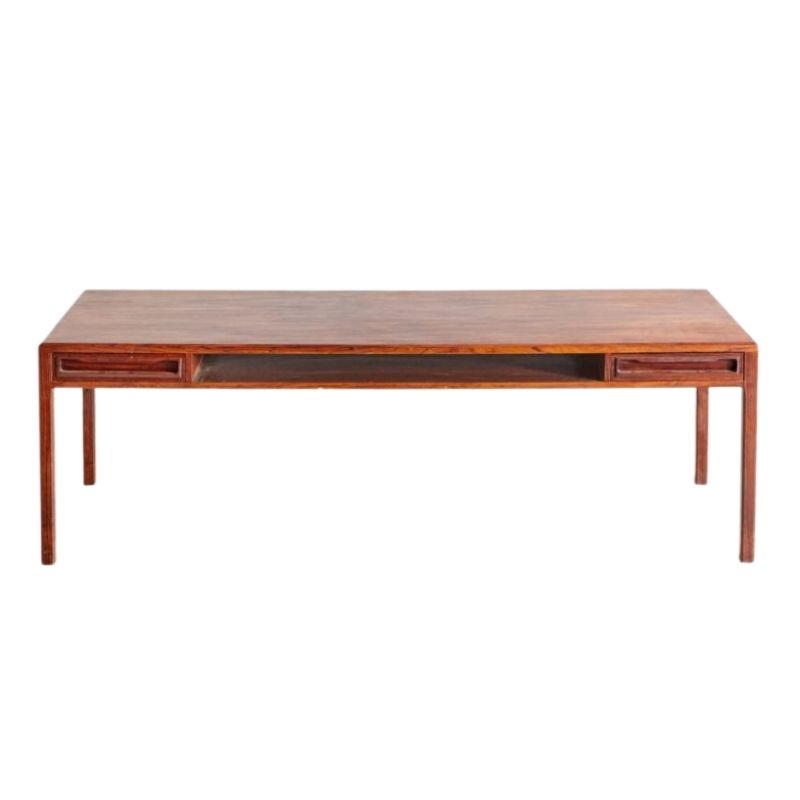The photo
of the oak unit above shows the opposite of rift-sawn veneer (which would present narrow parallel lines); what is shown is flat-sawn or plain-sliced veneer, book-matched (as is customary,) presenting a broad pattern with gentle curves which is repeated in mirror fashion (thus "book-matched").
Perhaps it is offered in both cuts ? This would help to match other wood in an interior. . .
The kind of warpage usuallty associated with solid wood boards is cupping -- dishing across the grain (across the width of the board). Although any flat material will deflect under weight when supported at the ends, a sold 3/4" plank is far less likely to do so than an equal thickness and width of MDF or particle board and somewhat less than plywood.
Of course, the board can be bent to begin with. It is possible to compensate for the weight by installing a shelf crowned up, of course. . .as is typically done when there is any curvature to a loose shelf.
One other thing to consider
I am assuming that you are contemplating the placement of A/V components in the spaces below, if not then read no further. If you are however, there is of course the issue of heat build up in a piece of furniture not specifically designed for audio/visual equipment. I only mention this as it appears that the disappation of heat is something taken quite seriously by stereo equipment manufacturers, evidence the tremendous number of vent holes and perforations in the backs and tops of many A/V components.
I faced the same issues (excessive heat and sagging) when I scratch built my television/home theater cabinet. Audio visual people at more then a few electronics stores all told me the same thing; "You don't want a lot of heat to build up in the cabinet." of course they were unable to give a definitive answer as to why, but they all said it would be bad for the long term health of the components and would effect operation.
As to the sagging issue I bolted a piece of one inch slotted angle iron onto the underside of my unit along its entire length as close to the center as possible while remaining undetectable when viewed from anywhere in the room. I have experienced no sagging whatsoever and the width of my unit spans 62 inches before reaching the upright supports all the while containing six seperate A/V components.
Mr. Whitespike have you considered
BDI, not really MCM but very clean and contemporary. Also well vented and a great wire management system. Link below.
http://bdiusa.com/avfurniture/avion.shtml
You can always
drill a series of vent holes in the back -- a row at the bottom (inlet) and at the top (outlet).
The slotted angle is a very smart move -- steel really resists bending !
MDF is heavy and smooth -- an appropriate and universal foundation for veneered furniture, and worlds better than particle board. Solid wood is tyoically reserved for edges (if you're lucky) and other trim, as well as legs and stretchers, of course, and handles.
..
Posted this the other day but I do think they're very good cabinets. This is basically the same thing and I still have objections about 2 pack finish or melamine but how about something like this? A kitchen manufacturer could make it quite cheaply or perhaps you could even get it made with veneered ply with a nice solid brass edging? Check out 'eveneer' (sexy site) if you want something really special.
I'm glad youre not getting the blu dot
http://www.eltongroup.com/eveneer/#
Wait
When the answer isn't obvious, wait. I will get one when the right one reveals itself.
I don't really like the idea of something ultra modern or new. A television to me is already overly "modern" in another sense of the term. For a television I would like something classic and warm. I don't want anything iconic or showy either. That is why a simple walnut box on legs is appealing.
If you need any help, please contact us at – info@designaddict.com









